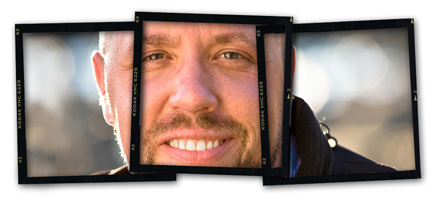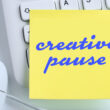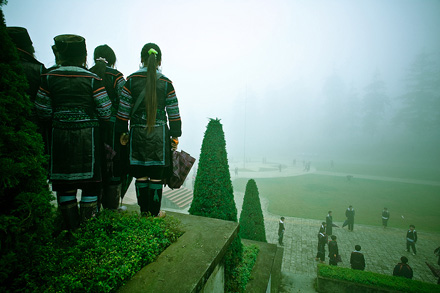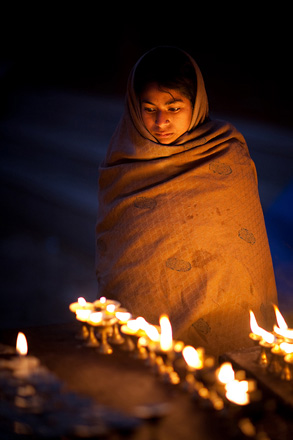The Coming Revolution

I believe we’re at a turning point in the way we, as an industry, approach our craft. Thanks to the internet, information moves faster and faster, filling our brains to bustin’ with everything any of us could ever hope to know about off-camera flash, HDR techniques, hyperfocal distances, and the effect of aperture shape on bokeh. We have learned more and more, and if we have not it’s not for lack of information. And at the end of day we’re still hungry; full up on HOW and still wondering WHY.
My first book came out on Monday. After writing it and spinning much of it around the idea that WHY always drives HOW, I am more convinced than ever that we are about to reach critical mass with the the HOW, and that we’re slowly turning, collectively, to see the vaccum that has formed while we weren’t paying attention. That vaccum is passion, vision, and the reason we picked up cameras to begin with – the need to express ourselves. To use a metaphor; it’s as though we’re reaching the pinnacle of typewriter technology and have awoken to find that what we’re really passionate about is the stories, the poems, and the words themselves rather than the keys and ribbons.
The incredible response to Zack Arias’ video Transform here on Scott’s blog, is a sign of the revolution of WHY that’s coming. It begins, like all good revolutions, with the murmors of discontent, but it’s going to lead somewhere great.
It’s going to lead to a satisfaction with the amount of megapixels we have and a dissatisfaction with the depth of our images. And that’s going to push us to make better images, not bigger ones.
It’s going to lead to a new ecumenical movement, the Nikon versus Canon crusaders will lay down their swords and go create photographs instead, suddenly aware that talking/arguing about photography is not the same as actually making photographs. They’ll suddenly realize they’ve been asking if Nikon or Canon is better and never ask, “better at what?”
It’s going to stop us from using terms like “Travel Photography” which defines our images by mode of transport and not by how compellingly we photograph people, places, or culture, here or around the world. Sure there are better ways to describe our work than, “I got on a plane to create this.”
It’s going to lead us to stop talking about the way we create light and start talking about the kind of light we create. That part of the revolution has already started with heroes like Joe McNally and David Hobby leading the fray.
The revolution, at its extremes, is going to push us to fall so in love with this craft that we abandon our addiction to technology and start calling the camera companies on their lunacy when they tell the world that their new cameras are so good practically anyone can now shoot like a pro; a claim that debases our craft and dishonors the work we all put in to be the best visual storytellers we can be.
It’s going to force us the re-examine the words “amateur” and “professional,” words that unfairly imply the amateur doesn’t love their craft enough that they’d do it for a living, or worse: implies they aren’t good enough. I believe this revolution will see the lines not only blur between so-called amateur and so-called professional, but be replaced by more meaningful descriptions of what we do.
I believe this revolution will force the artists and the geeks to not only talk to each other but to abandon both their addiction to technology and their pretense of creating “art” and get down to the business of simply learning and practicing their craft. Let the critics worry about whether it is, or isn’t, art – our job is to practice the craft.
I do not believe this revolution will be about abandoning the technology; there will be no sudden mass exodus from the digital world. Many will, like my friend Bruce Percy, go back to film because he simply likes it better. And those of us who prefer digital won’t be threatened by that. What matters is that we’ll stop being bankrupted by the need to keep up with this maddening pace and instead will learn to use the technology we do have, not to create images simply because we can, but to create images that better express our vision in more and more compelling, and gratifying, ways.
Idealistic, right? Maybe. But it’s that kind of idealism that leads me to believe a photograph can change the world. Perhaps not all at once, but who hasn’t had their own life course altered in some way because of one image? I can point to several, myself included, who heard the calling to photography in the eyes of Sharbat Gula, the Afghan girl whom Steve McCurry photographed in 1984. I know that the images I shoot for World Vision contribute to changing the lives of children living with HIV/AIDS and unimaginable poverty in sub-Saharan Africa – I’ve seen it. So I believe in this craft, and I like to think that the hundreds of thousands of cameras sold every year are a witness to the democratic nature of this elegant discipline. And it’s that which leads me to think we’re heading somewhere great, that the information avalanche that has necessarily accompanied the technological changes is going to carry us to great places, and once we dig ourselves out we’ll get back to the business for which we got into it all in the first place – capturing and expressing what our hearts and minds see through through our lenses and placing it, in slivers of time, within the frame. I can hardly wait.
My first book, Within The Frame, The Journey of Photographic Vision came out on Monday. Mr. Joe McNally was kind enough to write a touching foreword – easily the proudest moment of my professional life was reading his words at the front of my book. Vincent Versace wrote the afterword and it was his words about poets and revolutions that inspired me to start thinking about the coming revolution in digital photography. And I wrote the stuff in the middle. It’s a book about finding and expressing your vision, particularily where people, places, and culture are concerned. It can be found online at Amazon.com, Barnes & Noble or at your favourite vendor. I can be found at PixelatedImage.com/blog, I’d love to see you there. Peace.





